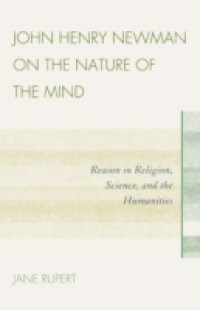From his vantage point in the nineteenth century, John Henry Newman offers much needed clarity to the twenty-first century, an age characterized by significant tension between science and religion and by a marginalization of the humanities. As a philosopher, theologian, priest, and man of Letters, he sheds light on our modern age by distinguishing between the different ways reason functions in science, religion, and literature. During his time, in response to a looming crisis in both religion and education, Newman challenged the usurpation of reason by science and empirical philosophy. He affirmed the need for the opening of the modern mind to other equally legitimate ways of knowing and defended the kinds of reason cultivated in the liberal arts. Jane Rupert delves into Newman's perception of the magisterial function of the imagination in both poetry and our knowledge of God, contributing unique insight into the study of his thought and showing how well it serves us to study this important nineteenth-century Catholic thinker. She presents a deep reflection of Newman's thought on several fronts, including intellectual history, theories of knowing, the controversy between science and religion, the defense of the liberal arts, and the aims of Catholic education.

